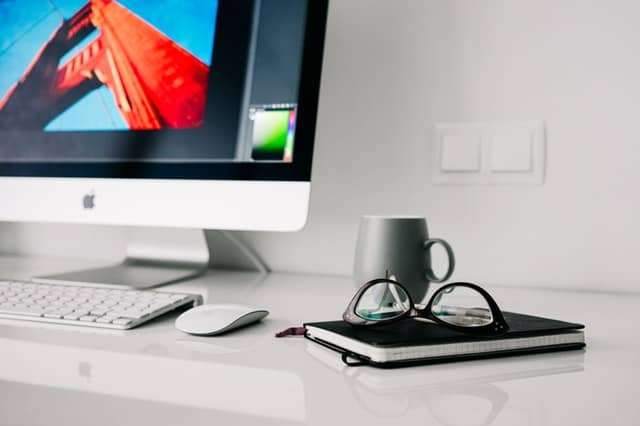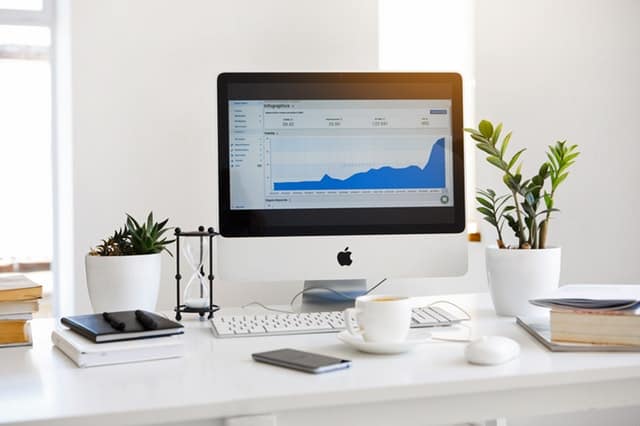Having a computer that optimizes efficiency and productivity is absolutely vital for startup founders, as well as his or her team. Your current laptop or desktop computer may be good enough pre-launch, but as your startup grows, you’ll need more power behind your tech.
Most startups are computer-based, usually launched from home or co-working space. However, the software needed to keep your startup operations running smoothly will depend on a few factors, like CPU, RAM, and disk drive capacity.
Is it time for an upgrade? This is a definite possibility. Before upgrading get the facts about the different types of laptop or desktop computers. To help, we compiled five key factors to serve as a quick guide. Let’s dive in!
1. Choosing Between Laptop and Desktop
The first factor in choosing the perfect computer for your startup is somewhat of a personal one, but it does have a few utility nuances as well. For example, if you launched your startup abroad, you may opt for a laptop due to its “on the go” nature.
Startup founders are choosing laptops more recently over desktops, mainly because they are more mobile than traditional business owners. The startup may not have an office or place to have a dedicated desktop in place. Team members of startups are also more mobile, making laptops a good choice for your small business.
Desktops, however, are still a must for many startups. The high performance and customization potential of desktop computers is valuable, especially for startups in the innovative tech space providing high-level software and client services.
Startups with an office also are more likely to have desktops since there is dedicated space for team members.
2. Storage Drives Enhance Startup Performance
The storage capacity of a laptop or desktop computer is a very important factor for startups. The hard drive storage capacity is the driving force behind a computer’s ability to store and extract files efficiently and fast.
Why is storage drive so important? For starters, the non-removable storage on your computer has a huge impact on your device speed. And when you’re running a business, your device speed plays a major role in your day-to-day operations. After all, there are several tools and platforms you’ll need to ensure everything runs smoothly. For example, you may require an extensive CRM tool to help you manage a large roster of customers and leads, or a leave management tool to better manage your employees. If you don’t plan on having heavy programs—for example, if you’re using absence management outsourcing—you have more leighway with the amount of storage you’ll need on your system. Furthermore, today, there are many cloud-based programs that are beneficial, depending on your industry.
Not all hard drives are the same though. The storage capacity of a hard drive can range from 128GB to as high as a few terabytes. Do you need a high performing 2TB computer? Maybe not, so be sure to get the storage capacity the works for your business needs now, as well as in the near future.
Solid-state drives are also an option to take computer performance to the next level. They provide a higher level of performance than regular hard drives, but a more robust price tag will accompany such performance.
3. Windows Operating System or Apple iOS?
There are pretty much two operating systems for a computer these days. If you get a PC, you will most likely have the Windows 10 OS. This is a strong choice, since most business software is highly compatible with Windows 10.
On the other hand, if you simply love Apple Macs, you will be utilizing an iOS for your daily computer needs. This is still strong, and really it comes down to personal preference. If you have ever switched from OS to iOS, or the other way around, you know that relearning a system can be challenging for the first month or so.
Be honest about the type of operating system you and your team is comfortable with. Not all business software is iOS compatible, so do a bit of research about the software you’ll need and check how compatible it is prior to making your next computer purchase.

4. Central Processing Unit (CPU) is a Very Important Factor
The computer you choose for your startup needs to have a powerful CPU behind it. Essentially, the CPU is what allows computer programs to be efficient and productive. If you need speed, a high level CPU is a must.
To optimize performance and allow you to have lightning speed program use, a computer with a CPU in the range of 2GHz to 4GHz will do the trick. In upwards of 4GHz can be beneficial for startups relying heavy on executing multiple programs at the same time.
5. Support Your CPU with RAM
RAM is like support for your CPU. It can compliment the lightning speed you are looking for in your next laptop or desktop computer. Having increased RAM is basically what lets a computer execute multiple tasks at once with performance at the forefront.
For a strong performing startup computer, aim for about 6GB to 8GB of RAM. You can go as high as 16GB, but you may not need to pay so much for RAM you might not use. For instance, 1600MHz and 8GB may be the sweet spot for most founders to get tasks done in an efficient way.
Wrapping Up . . .
When it comes to choosing the best computer for your startup, keep these five factors in mind. And once you’ve chosen your computer, be sure to keep it safe. They can serve as a quick guide when doing your computer research. If you need a high level of performance, you can cut costs by going the refurbished route with plenty of desktop PC options. Is it time to upgrade your startup computer?

